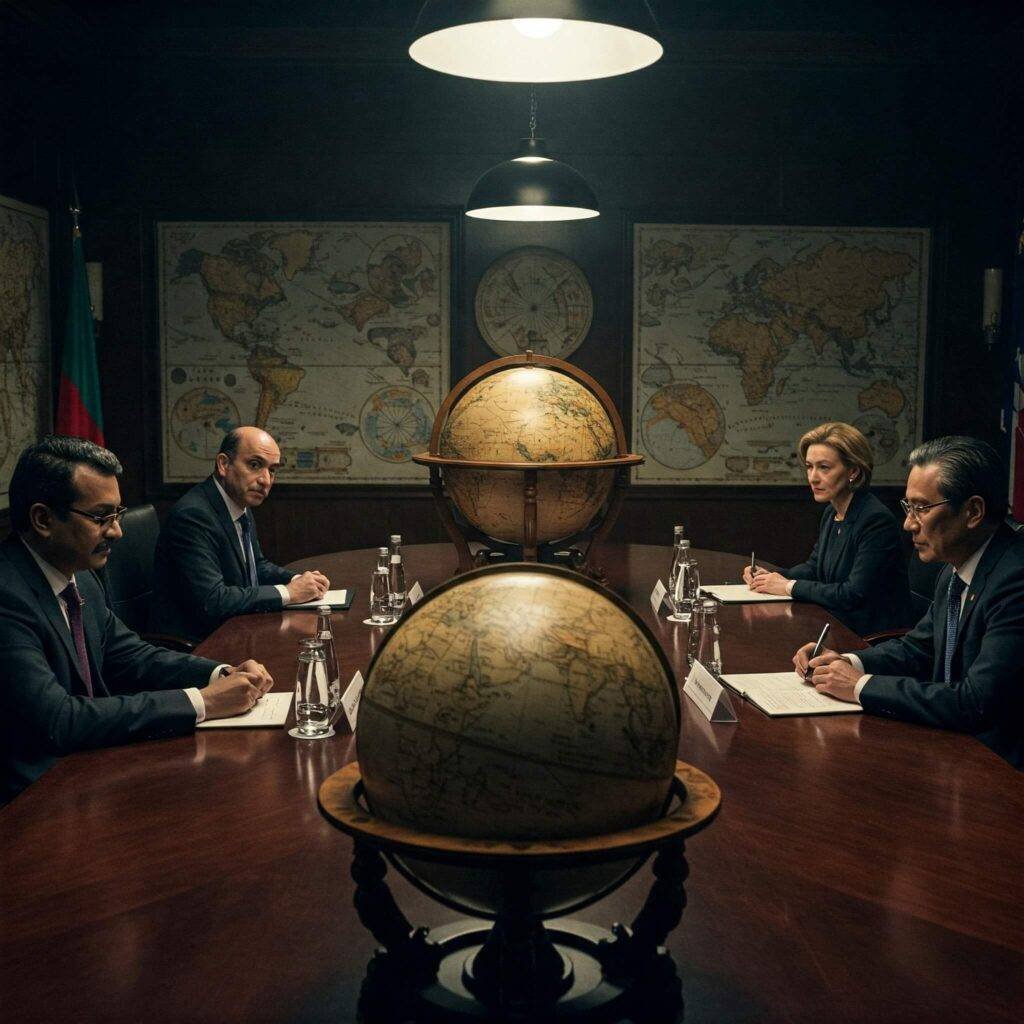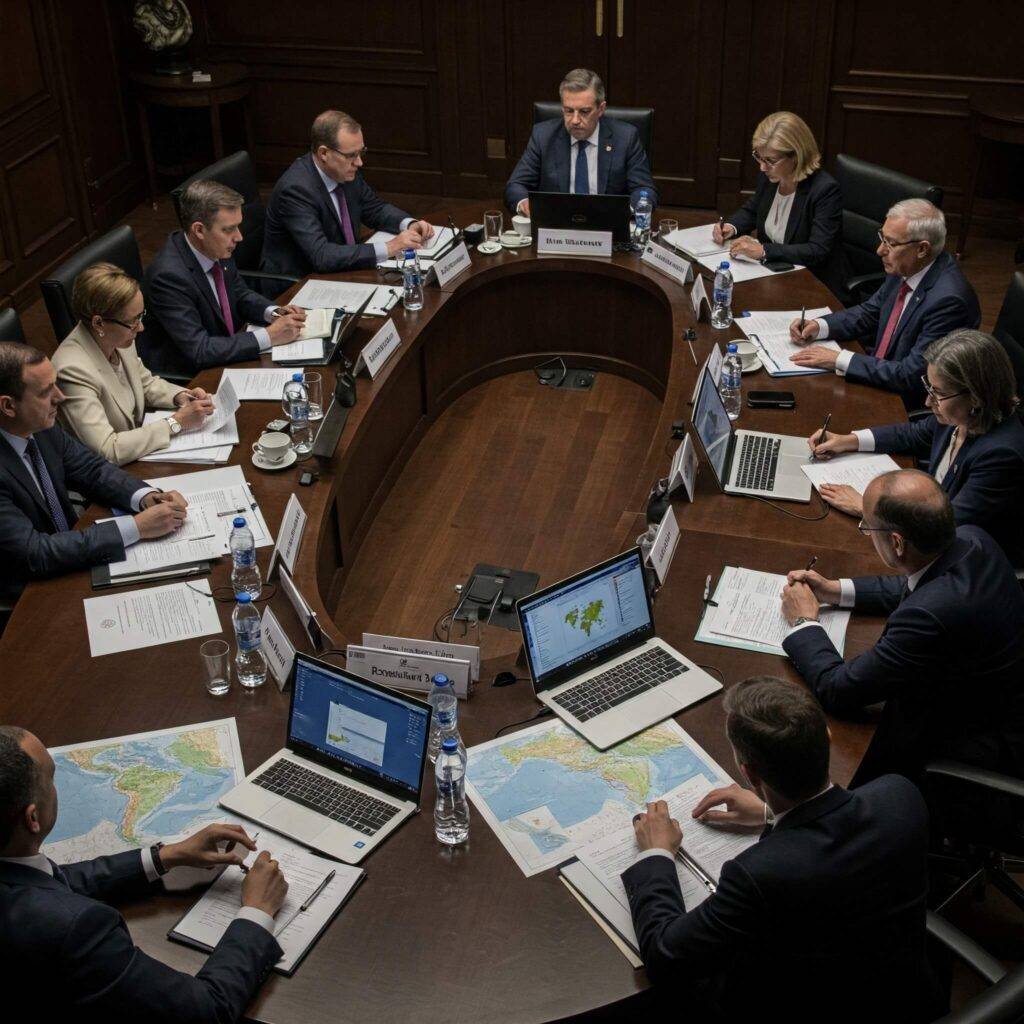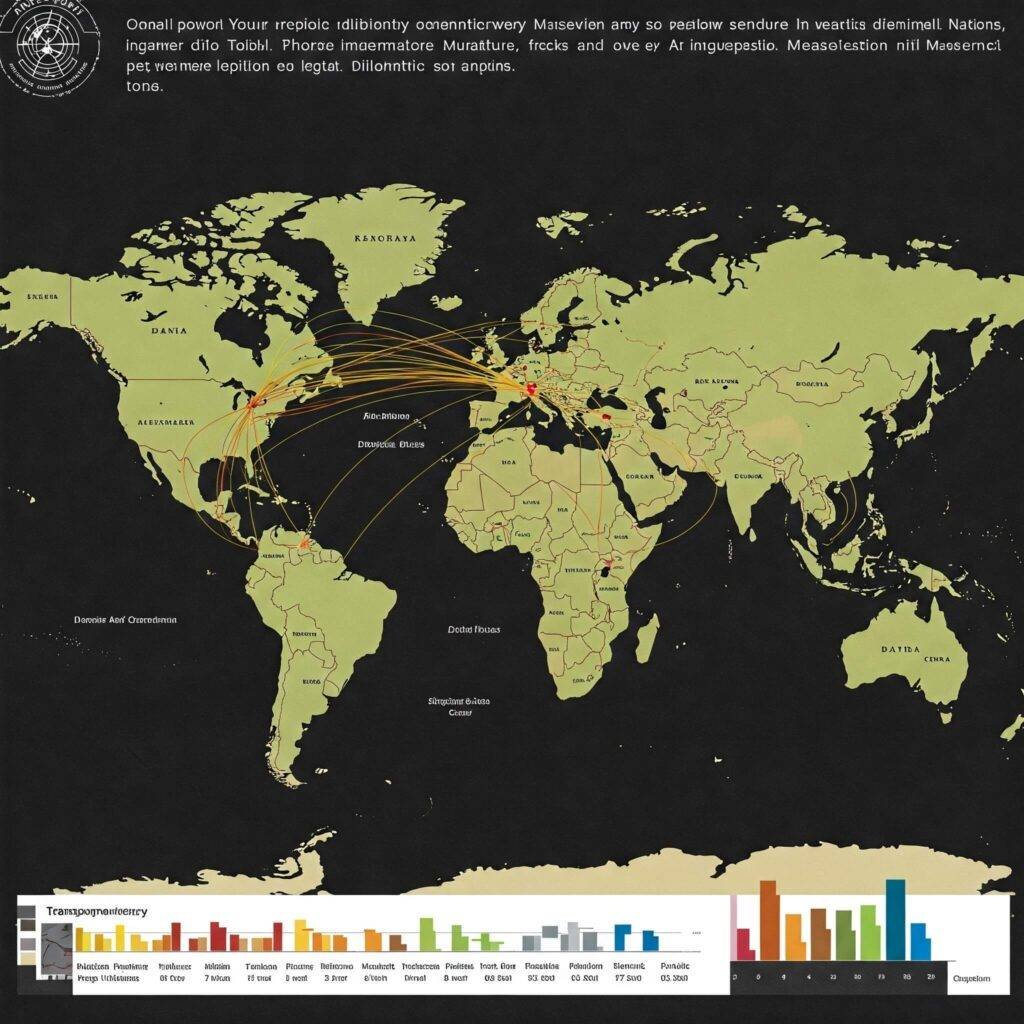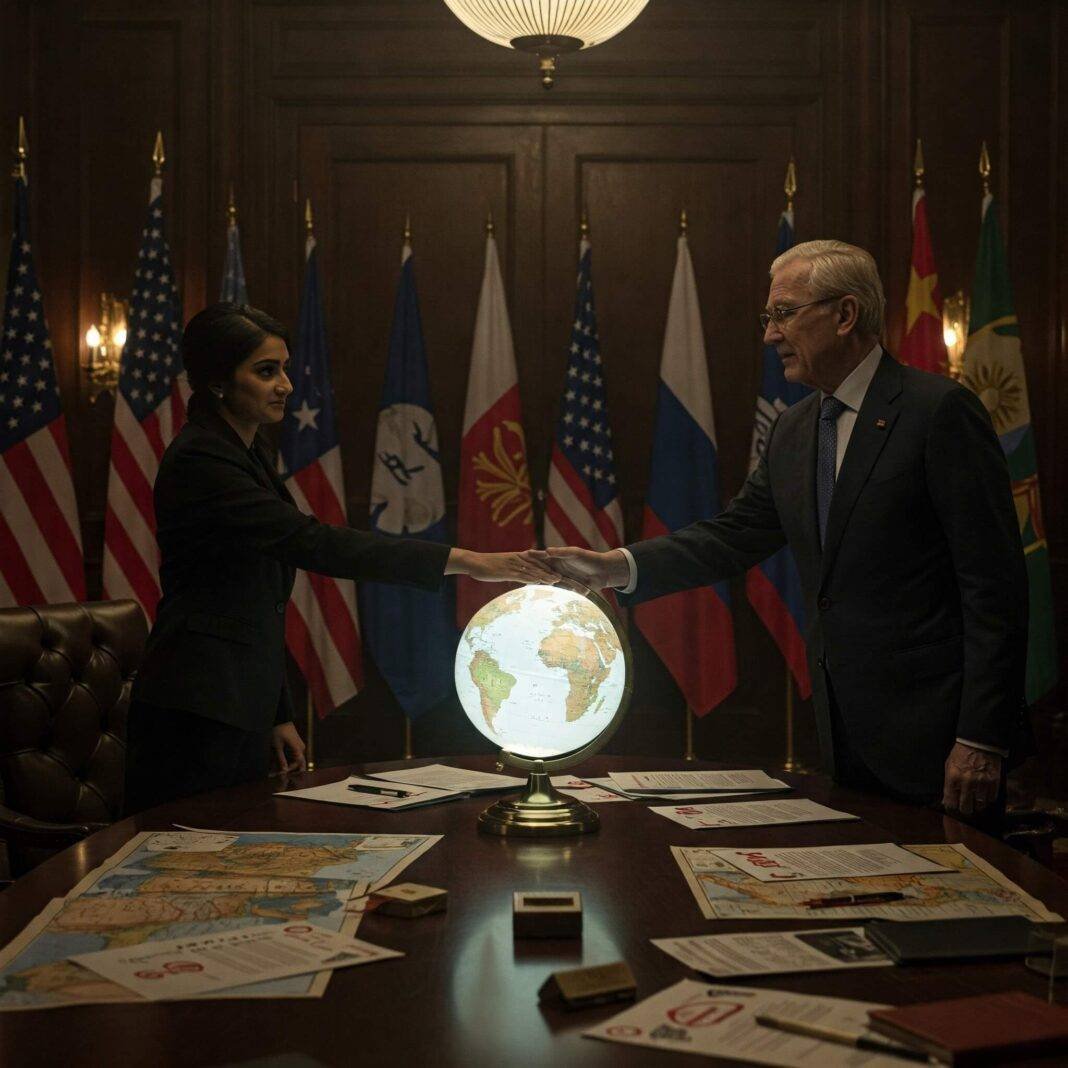Global diplomacy unveiled reveals the secretive world of high-stakes negotiations that shape our planet’s future, from trade deals to peace accords. These closed-door talks involve intense strategies, power plays, and compromises that rarely make headlines. Let’s pull back the curtain on what really happens in these secret meetings and why they matter in 2025.

The Hidden World of Global Diplomacy Behind Closed Doors
Global diplomacy behind closed doors is where nations resolve conflicts, forge alliances, and tackle global challenges like climate change. Unlike public summits, these private meetings are raw, unfiltered, and driven by strategy. Here’s how they work:
- Key Players: Heads of state, diplomats, and advisors, often with translators or aides.
- Settings: Secure locations like embassies or neutral venues (e.g., Geneva, Vienna).
- Goals: Agreements on trade, security, or humanitarian aid, per Council on Foreign Relations.
Real-World Example: The 2015 Iran nuclear deal talks in Lausanne involved months of secret negotiations, with tense late-night sessions, per BBC News.
Actionable Takeaway: Stay informed on global issues via Foreign Affairs to understand diplomacy’s impact.
outbound link: Council on Foreign Relations
Strategies Driving Global Diplomacy Behind Closed Doors
Successful diplomacy relies on tactics honed over decades. These strategies define how global diplomacy behind closed doors unfolds in 2025.
1. Power Plays and Leverage: global diplomacy unveiled
Nations use economic, military, or cultural leverage to sway talks. Stronger powers often set the agenda, but smaller nations can punch above their weight with strategic alliances.
- Example: In 2023, India leveraged its G20 presidency to push climate finance reforms, per Reuters.
- Data: A 2024 SIPRI report noted 60% of diplomatic outcomes favor nations with stronger economies.
Actionable Takeaway: Follow economic trends on Bloomberg to predict diplomatic leverage.

2. Backroom Deals and Compromises: global diplomacy unveiled
Secret deals often resolve deadlocks. Diplomats trade concessions—like tariff cuts for security pacts—to seal agreements.
- Example: The 1993 Oslo Accords saw Israel and Palestine make secret concessions in Norway, per Al Jazeera.
- Insight: Compromises are rarely public to avoid political backlash, per The Diplomat.
Actionable Takeaway: Research past accords on UN.org to spot patterns in deal-making.
3. Cultural Nuances and Trust-Building: global diplomacy unveiled
Diplomats navigate cultural differences to build trust. Missteps, like ignoring protocol, can derail talks.
- Example: In 2024, a U.S.-China summit stalled over protocol disputes, per South China Morning Post.
- Data: A 2024 Harvard Kennedy School study found 70% of failed talks cite cultural misunderstandings.
Actionable Takeaway: Learn about cultural diplomacy via USC Center on Public Diplomacy to appreciate its role.
Why Global Diplomacy Behind Closed Doors Is Flawed
While effective, global diplomacy behind closed doors has flaws that spark debate in 2025. These issues undermine trust and fairness.
1. Lack of Transparency
Secret talks exclude public input, fueling distrust. Citizens often learn outcomes only after decisions are made.
- Example: The 2018 U.S.-North Korea talks in Singapore faced criticism for secrecy, per CNN.
- Data: A 2024 Pew Research poll found 65% of global citizens want more diplomatic transparency.
Actionable Takeaway: Advocate for transparency by following NGOs like Transparency International.
2. Power Imbalances
Wealthier nations dominate, marginalizing smaller states. This skews outcomes toward global powers.
- Example: In 2024, African nations criticized G7 trade talks for ignoring their needs, per Africa News.
- Insight: Smaller nations form blocs, like the African Union, to counter this, per AU.int.
Actionable Takeaway: Support fair diplomacy via Oxfam to amplify smaller voices.

How Global Diplomacy Behind Closed Doors Affects You
These secret talks shape your life more than you might think. Trade deals impact prices, security pacts affect safety, and climate agreements influence your environment. In 2025, as global tensions rise, understanding diplomacy’s hidden dynamics empowers you to stay engaged.
Real-World Example: The 2022 U.S.-EU trade deal lowered tech tariffs, reducing gadget prices but sparking job loss debates, per Forbes.
Actionable Takeaway: Monitor global summits on World Economic Forum to see how diplomacy affects your wallet and world.
Fixing Global Diplomacy Behind Closed Doors
Reforming diplomacy is tough but possible. Here are three ways to improve global diplomacy behind closed doors:
- Increase Transparency: Share non-sensitive negotiation summaries with the public.
- Empower Smaller Nations: Create inclusive forums like the UN General Assembly.
- Leverage Technology: Use secure platforms for virtual talks to reduce costs and widen participation.





